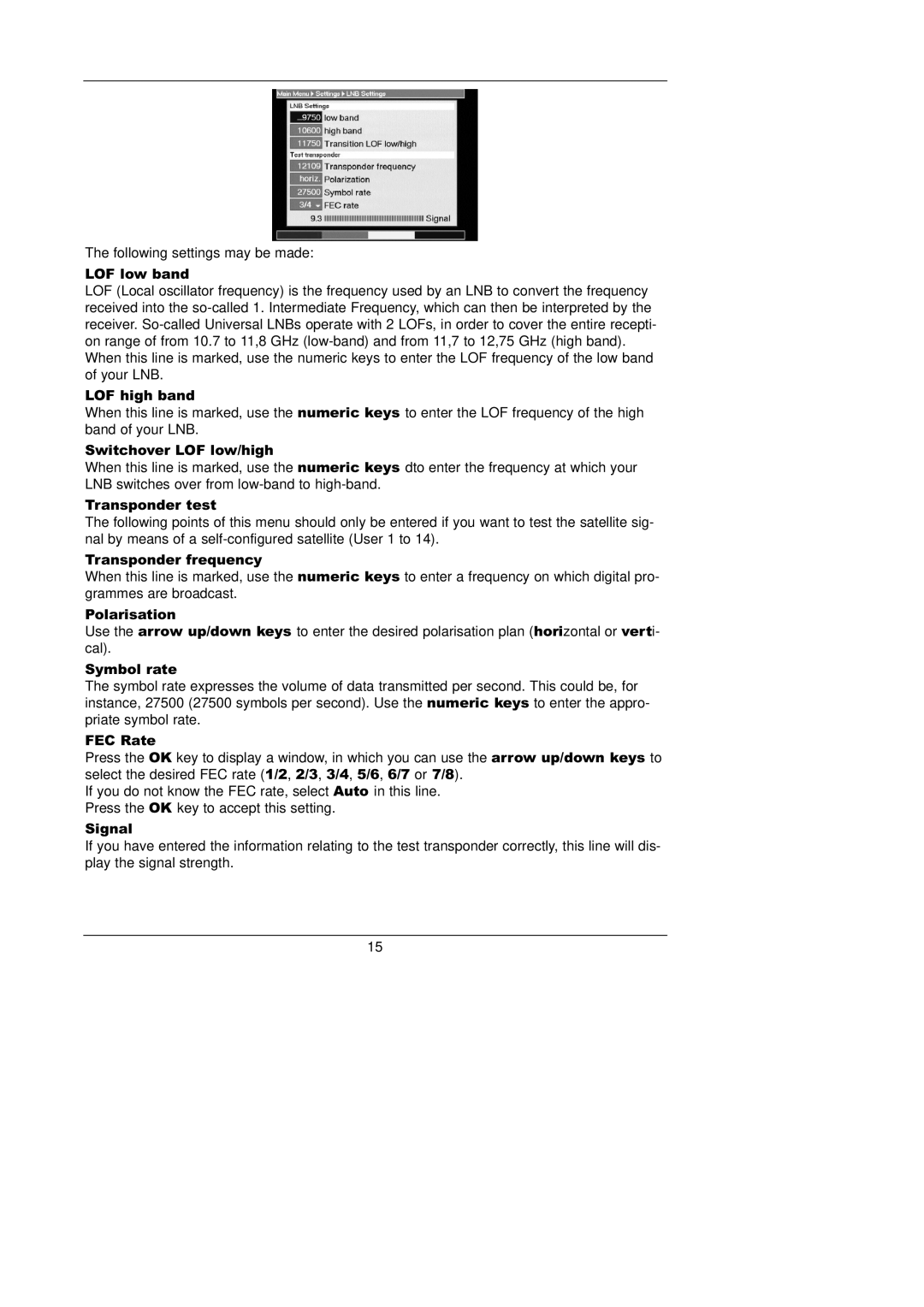
The following settings may be made: LOF low band
LOF (Local oscillator frequency) is the frequency used by an LNB to convert the frequency received into the
When this line is marked, use the numeric keys to enter the LOF frequency of the low band of your LNB.
LOF high band
When this line is marked, use the numeric keys to enter the LOF frequency of the high band of your LNB.
Switchover LOF low/high
When this line is marked, use the numeric keys dto enter the frequency at which your LNB switches over from
Transponder test
The following points of this menu should only be entered if you want to test the satellite sig- nal by means of a
Transponder frequency
When this line is marked, use the numeric keys to enter a frequency on which digital pro- grammes are broadcast.
Polarisation
Use the arrow up/down keys to enter the desired polarisation plan (horizontal or verti- cal).
Symbol rate
The symbol rate expresses the volume of data transmitted per second. This could be, for instance, 27500 (27500 symbols per second). Use the numeric keys to enter the appro-
priate symbol rate.
FEC Rate
Press the OK key to display a window, in which you can use the arrow up/down keys to select the desired FEC rate (1/2, 2/3, 3/4, 5/6, 6/7 or 7/8).
If you do not know the FEC rate, select Auto in this line. Press the OK key to accept this setting.
Signal
If you have entered the information relating to the test transponder correctly, this line will dis- play the signal strength.
15
